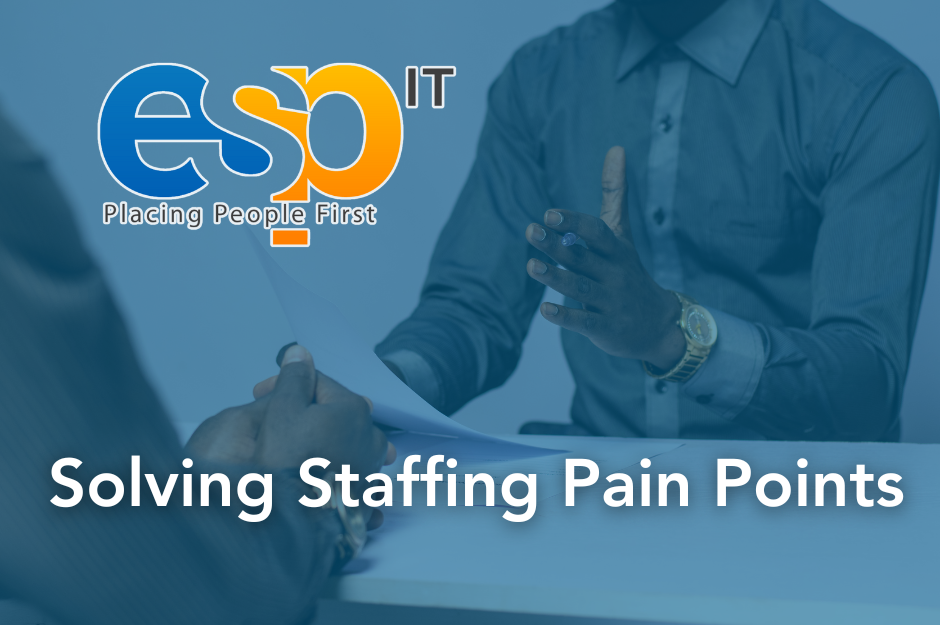Working with or in IT, you’ve undoubtedly encountered contract-to-hire. Since gaining popularity around 2010, these opportunities have been purported as “win-win” solutions for employers and employees alike, allowing individuals to contract with a company for a defined period under the mutual intention of considering a more permanent arrangement when the contract is over. But while many find this middle-ground arrangement to be the best of both worlds, others have concluded that perm-only or contract-only arrangements are their best fit. That’s why it’s important for both parties to consider the positives and negatives before pursuing a contract-to-hire arrangement. Who knows – after considering all the facts, you may find yourself making an unexpected choice.
Getting to Test the Waters Before Diving In
The Positives for An Employer:
- Gain Financial Security: Contract-to-hire positions support the old adage of “try before you buy”. As an employer, this means that you are able to better protect yourself financially by structuring your investment. Your company pays an hourly rate, avoids the cost of benefits, and simultaneously justifies the need for a permanent position. Ultimately, you’ll be able to fill your tech talent needs while you wait for budget approval, which in itself could lead to financial gains by increasing your team’s productivity and effectiveness.
- Get a Skilled IT Pro, Fast: Because you’re not locked into a long-term commitment, you can afford to spend less time interviewing, and therefore get a qualified IT pro on board faster. On top of being able to fill your need faster, you’ll be able to gain a much better sense of your candidate’s qualifications during the trial contract period than you would have gotten even through extensive interviews.
- Share a High Level of Investment: In a contract-to-hire relationship, it’s even more important than usual that you discover your employee’s potential, and understand his or her career aspirations. This will help you to ensure that both you and the employee would be happy with a more permanent relationship at the contract’s cessation. Simultaneously, the employee will likely feel a high level of investment in your company due to the potential for future permanent employment. Because of this, IT pros in contract-to-hire roles often strive to prove their value, and will likely produce exceptionally high-quality work.
The Positives for An IT Pro:
- Get a True Sense of Culture Fit: “Try before you buy” doesn’t only work for the employer. In many ways, you get to approach your contract-to-hire opportunity with the same mentality. During the “trial” contract period, you will be able to better assess whether or not a company is your best fit. Consider how comfortable you are collaborating with your teammates, notice if the company allows flexible hours or remote working, and assess your commute to and from the office. While such topics may be addressed during a traditional interview, you can only really grasp their impact on the job. With contract-to-hire, should any of these areas not meet your expectations you have the opportunity to seek other IT gigs at the end of your predetermined contract period.
- Find a Tech Job in No Time: Because most contract-to-hire positions seek to fill an immediate need, you could land such an opportunity quickly, eliminating the standard “wait time” to hear back from an employer and avoiding the many traditional rounds of interviews. This is especially beneficial to those tech pros who are new to their field, experiencing a gap in employment, or looking to change-up their career, as it allows them to earn an income while opening the door to future opportunities.
- Evaluate the Position Itself: Of course you’d never accept an IT gig if you thought in advance that you wouldn’t enjoy working it. But as we all know, sometimes jobs don’t meet our expectations. Accepting a contract-to-hire opportunity allows you to evaluate the intricacies of a position, including the day-to-day tasks involved and your compatibility with your direct supervisor. Not only will you gain a clearer sense of these areas, but you may also acquire information about future advancement opportunities within the company, which could include understanding the additional requirements these opportunities may entail (i.e. travel, overtime, etc.).
Limiting Your Possibilities
The Negatives for An Employer:
- A Narrowed Talent Pool: Not only are many IT pros unwilling to leave full-time roles for a contract-to-hire opportunity, but of those who are comfortable with contract work, most have little desire to eventually transition into a full-time position. Contract-only or consultant tech pros tend to like the flexibility of temporary projects, and generally get paid more for their expertise and flexibility than regular full-time employees. On the other hand, those tech pros looking for permanent full-time opportunities often seek the benefits and stability that contract-to-hire doesn’t offer. Because of this, you may be turning off the best of the best, and could have to lower your expectations.
- Fierce Competition: In the midst of the tech talent shortage, IT pros receive many opportunities – both unsolicited and pursued. They may even receive other offers during their contract-to-hire employment with you. Unclear expectations are the greatest reason most contract-to-hire roles don’t work out, but by openly communicating about the role, your hiring timeline, and career growth opportunities, you can maintain a competitive edge. This may also mean you’ll need to be open to making a different type of offer than you originally expected. For example, if your contract-to-hire IT pro is enjoying the flexibility of contract work, you may want to consider extending the length of the contract. On the other hand, if your employee is eager to be brought on full-time, consider working with your recruiting firm to expedite the permanent placement process.
- Potential to End Up Back at Square 1: In any employee relationship, you run the risk of it ending sooner than you’d hoped. But in contract-to-hire additional factors may complicate the process, even increasing the probability that you’ll have to start your talent search over. The tech pros you bring on will be evaluating you just as much as you are them in order to determine whether or not a permanent role is desirable. Always assess the position’s convenience against the ultimate risk that your IT pro will choose not to proceed with a permanent placement. Ask yourself, “what is my top priority?” If it’s to end up with a permanent employee, you may want to hire accordingly from the start. If you need time for budget approval, contract-only and consulting tech pros may be best. Depending on the individual’s desires you can always discuss bringing a contract-only worker on board permanently at a later time. Contract-to-hire is only a worthwhile risk if these other priorities don’t outweigh your desire for flexibility.
The Negatives for An IT Pro:
- Uncertain Timeline: No matter how hard you may work for a given employer, or how qualified you are to be brought onto a team in a permanent capacity, there are no guarantees that your employer will offer you a desired role at the end of your contract period. Most contract-to-hire contracts last three, six, or twelve months, and may last longer if your employer offers you an extended contract instead of a permanent role. Remember that a lot of contract-to-hire employers are on limited or uncertain budgets, and may not be able to offer you a role when you want, or even at all. If you aren’t willing to take such a risk, searching for the type of contract-only or permanent position you are truly seeking will be a better choice for you in this high-demand market place.
- Potential Gap on Your Resume: In the event that your contract role doesn’t work out, you’ll be back on the job search, and most likely unexpectedly. Because you enter into contract-to-hire roles with a mutual intent to eventually be hired, it’s nearly impossible for you to plan on a backup should your 6-month contract end without an offer. On the plus side, this gap of employment on your resume is easy enough to explain. On the downside, it leaves you without income, and with months of investment that didn’t result in the career you were seeking.
- Every Day’s an Interview: Every day on the contract-to-hire job, you have to prove yourself to a company, stand out in a positive way, and offer new and creative ideas and strategies that will make you invaluable. Simultaneously, you must avoid criticizing the company’s current initiatives, or giving any feedback that could be construed in a negative light by your employer. Sound like an interview? It is. Trying to prove yourself and earn a full-time offer while remaining flexible and quickly adapting to the company’s needs can be exhausting. You may begin to feel more like you are “performing” daily than actually gaining an accurate sense of what working for the company permanently would look like.
Contract to hire is all about weighing the risks of uncertainty against the benefits of flexibility and time for consideration. Many companies choose contract-to-hire because they’ve had repeated past successes with this method of hiring. Many tech pros see contract-to-hire as a great opportunity to expand their professional network, whether or not the opportunity lands them a permanent placement. If you’re on the fence about pursuing a middle-ground solution, talk with your staffing firm or recruiting agency about the ways they can offer support to both parties during a contract-to-hire arrangement. As long as you’ve considered both the opportunities and drawbacks to contract-to-hire, you’ll be poised for great success and satisfaction, no matter your decision.



